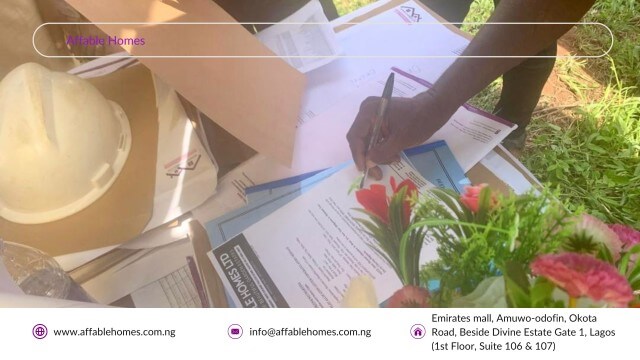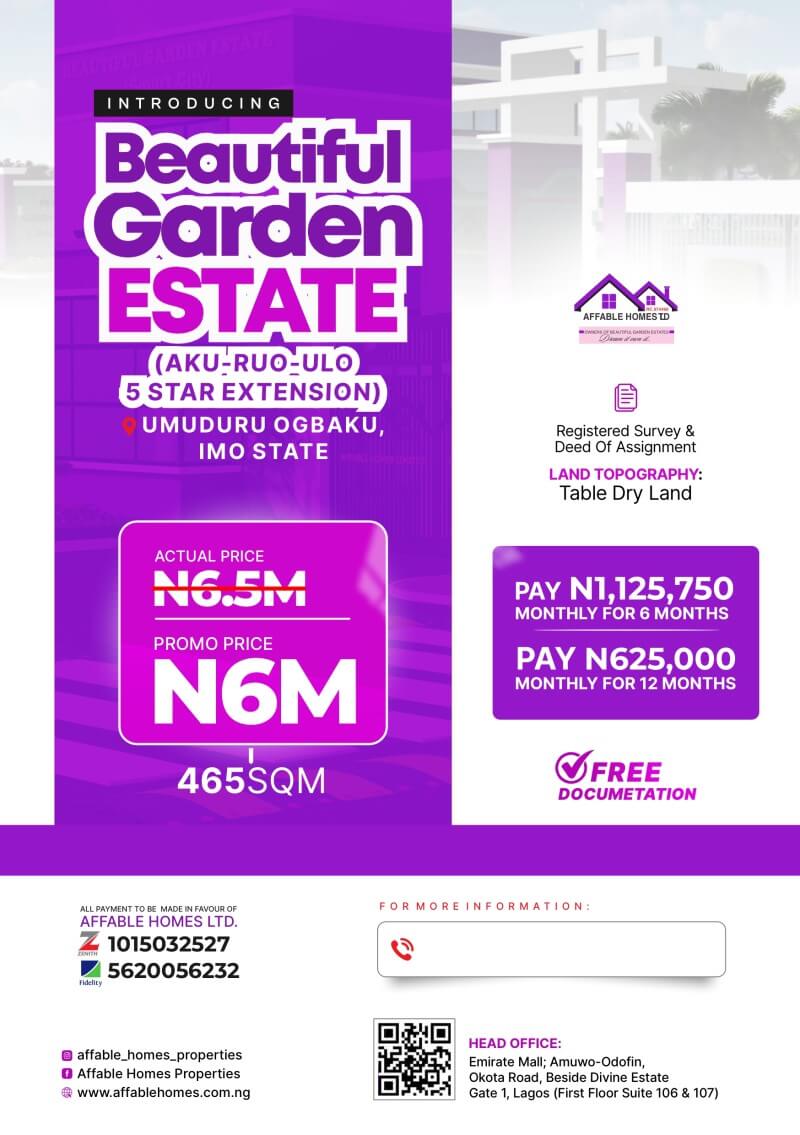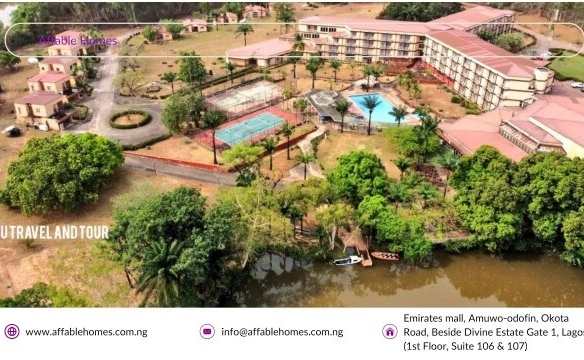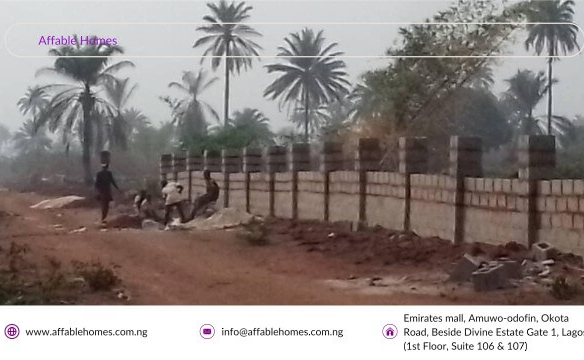Land titles are an important part of real estate transactions in Nigeria. Their presence or absence can make or break a deal, determine ownership, and even dictate the level of security attached to a property.
Without the proper title, you could be exposing yourself to fraud, disputes, or even losing your investment. So, understanding land titles isn’t just a technicality—it’s a must for anyone dealing with real estate in Nigeria.
In this guide, we’ll break down the different land titles you should know, so you’re well-equipped to handle real estate transactions. But first, let’s get into what a land title really is.
What is a Land Title?
A land title is an official document that legally proves ownership of a piece of land or property. It specifies the rights of the owner and can include restrictions or conditions attached to the use of the land. In essence, it acts as the key to secure and legitimate property ownership.
In Nigeria, the complexity of land ownership comes from the Land Use Act of 1978, which vests all land ownership in the government. This means private individuals or entities can only hold land through legal titles or leases issued by the government.
10 Different Land Titles You Should Know in Nigeria
Now that we’ve covered the basics, let’s get into the different types of land titles you should know in Nigeria.
1. Certificate of Occupancy (C of O)
A land transaction is never complete without the Certificate of Occupancy. Issued by state governments, the C of O is arguably the most important land title in Nigeria. It certifies that you have been granted ownership of the land for a term of 99 years.
In property transactions, a C of O is very important because it serves as conclusive proof of ownership. Apart from that, it is also required when applying for bank loans or using the property as collateral.
Also Read:
- Follow This To Verify Your Land Ownership in Ofada Owode
- What to Look for During a Land Site Inspection in Ofada Owode
- How Can I Protect Myself From Property Fraud in Ibusa, Delta State
2. Right of Occupancy (R of O)
The Right of Occupancy is similar to the C of O but operates at the local government level. It’s issued to individuals or organizations who have the right to occupy and use a parcel of land for a specified purpose, such as agriculture or residential development.
What you should know about the R of O is that it can be granted for both developed and undeveloped land. But it is mostly given for lands in rural areas.
It serves as the first step toward obtaining a C of O. If you’re purchasing land with an R of O, confirm that the land is not under acquisition or dispute by the government.
3. Deed of Assignment
The Deed of Assignment is one of the most critical documents in land transactions. It officially transfers ownership of a property from one party to another.
A well-prepared Deed of Assignment contains the following:
- A detailed description of the property.
- The names of the buyer and seller.
- The agreed purchase price.
Keep in mind that without registering your Deed of Assignment with the Land Registry, the transaction may be deemed invalid under Nigerian law.
4. Governor’s Consent
Under the Land Use Act, any transfer of land ownership requires the approval of the state governor. This approval is what’s known as the Governor’s Consent.
This document is important because it validates the Deed of Assignment. In addition, it prevents future disputes over land ownership.
When buying a property that already has a Certificate of Occupancy, if you fail to obtain Governor’s Consent, you may be putting your investments at risk.
5. Survey Plan
Though not technically a title, a Survey Plan is a graphical representation of a parcel of land, showing its exact dimensions and boundaries. It is usually prepared by a licensed surveyor.
A Survey Plan reveals the location of the land and the size and shape of the land. It also shows whether the land falls under government acquisition.
One pro tip you should always remember is to always verify any survey plan you get. You can verify it with the Office of the Surveyor General to avoid purchasing land with false or inaccurate boundaries.
6. Freehold Title
A Freehold Title is one of the most secure forms of land ownership. It signifies absolute ownership of land and is free from government acquisition or claims.
This title offers many advantages such as no time limit on ownership. It also means that the land/property can be passed down through generations.
However, even with a freehold title, ensure the property is properly surveyed and registered to solidify your claim.
7. Deed of Lease
A Deed of Lease grants temporary land usage rights for a specific period, usually for commercial or industrial purposes.
It is just like normal renting, but with more long-term legal backing. Essentially, this document secures land usage rights for the lessee for a fixed term.
One of the most important functions of this document is that it outlines the terms and conditions of the lease. That way, it protects both the lessor and lessee legally.
8. Deed of Sublease
This document is similar to the Deed of Lease, but it serves a different purpose. It is issued by a leaseholder to a third party that wants to use the land or property that is already on lease.
In other words, this document allows the leaseholder to sublease the land to another party. For the deed of sublease to be valid, it’s important to ensure that it aligns with the terms of the original lease. Also, ensure that the duration of the original lease is still ongoing and has not been completed.
Aside from allowing flexibility in land usage arrangements, a Deed of sublease is essential for businesses that need temporary expansion.
9. Gazette
A Gazette is an official government publication that lists lands that have been excised and are free for private ownership.
It’s critical because it serves as evidence that the land has been excised. It is also a major document for obtaining a C of O.
While many investors may want to skip this step, keep in mind that not checking G the gazette can lead to legal battles or financial losses. Always double-check for the Gazette before proceeding with any purchase.
10. Land Certificate
Before the introduction of the C of O, the Land Certificate was the primary proof of ownership in Nigeria.
While it’s less common today, some older properties still rely on this document. It predates the Land Use Act. In that vein, it is valid for land purchased before 1978.
If you own a property with a Land Certificate, consider converting it to a C of O for modern-day validity.
Also Read:
- Top 10 Interesting Facts About Badagry You Should Know
- 10 Simple Questions to Ask Before Buying Land in Badagry
- Follow This Guidelines to Avoid Land Scams in Badagry
Securing Your Land Titles
Owning land in Nigeria goes beyond making payments. It requires securing the proper land title to establish your ownership legally.
Each title serves a specific purpose, ensuring your investment is protected from disputes and fraud, including government interference.
We advise that you should always work with trusted real estate professionals and verify all land titles before committing to any transaction. If you need expert guidance on real estate documentation, contact us today and we will gladly assist you.
To explore any of our real estate investment packages like land banking, retirement plan, kids education investment plan, trade apprenticeship plan or if you want to purchase some plots where you will have residential or commercial buildings, send an email to us at info@affablehomes.com.ng or call +2349134056630.






Join The Discussion